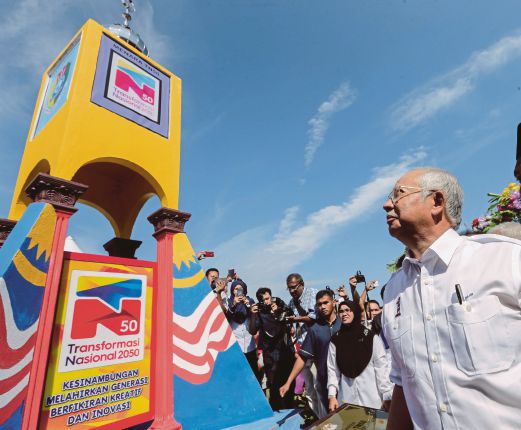In 2050, Malaysia will not be the same country. In the coming three decades, the forces of change and societal evolution will be at work, shaping and reshaping the country so that it emerges stronger and more dynamic.
Both progress and regress are possible. We may live better than in 30 years or we may not. It is erroneous to think that change occurs on a straight upward line. When it comes to the future, there are no certainties or assurances. Equally false is the belief that everything will be resolved by easy-to-spout generics done by others such as human resource development, innovation, government policies or political stability. If life worked like that, we would have it easy.
By definition, what must be true is that Malaysian mindsets must be open, responsive and creative if we are to get anywhere. Also axiomatic is that there must be rich societal cooperation based on enlightened reciprocity.
If there continues to be this divisive “us versus them” mentality, now prevalent and, for some, politically expedient, our future wellbeing will be the least of our problems. The larger question is whether we will still be a nation.
Leaving this question aside, we have to set our sights and standards higher and be a whole lot tougher on ourselves to live in a world where inequalities are already very high and the threat of further marginalisation is ever present.
If not already obvious, the differences between the “haves and have-nots” and the “can-do and cannot-do” will open up greatly because of technological progress, many of which are already on our doorstep.
Unfortunately, most Malaysians are blissfully unaware of the implications of the life-changing revolutions to come. If we are aware, we only know the mental concept and not their deeper implications.
Take the Fourth Industrial Revolution, where technology is fusing the physical, digital and biological world. Do we understand that virtually all our manufacturing and even services sectors are being rendered obsolete?
As you read this, engineers are digitally connecting everyday devices wirelessly through the Internet. Embedded in them are real-time analytics, machine learning and artificial intelligence (or software that writes software).
Intelligent robotics has taken root in First World factories, but China, Singapore and others are not far behind. In the meantime, Malaysian factory owners clamour for more cheap foreign workers to exploit.
In Singapore, a fully automated taxi service is in the process of being rolled out. In Dubai, an unmanned aerial vehicle (UAV) or drone taxi service, using Chinese technology, is starting to fly the public around.
In Malaysia, taxi drivers complain bitterly that they cannot make a living. They are demanding that the government ban ride-sharing smartphone applications even while manned car services are being made redundant.
Malaysia’s industrial development greatly accelerated in the mid 1970s when a United States semiconductor company invested its labour-intensive assembly operations in Penang.
The same company today is starting to produce semi-conductors of just seven nanometres (or seven billionths of a metre) in size in Arizona, the US. There is now no need to move its factories offshore.
(Within a decade, semiconductors will be the width of just a few atoms providing unthinkable computing power.)
For better or worse, mankind is now capable of re-engineering human, animal and plant life. Having sequenced the whole human genome more than a decade ago, our understanding of DNA has increased exponentially.
Scientists can now edit out undesirable gene sequences. Human hereditary diseases can be treated. Livestock, such as salmon, can be made to grow faster. Cow milk can be made allergy-free. Food plants are made safer and healthier.
Granted, the scale and speed of change in the next three decades will be difficult for most human minds to understand, let alone internalise and accommodate.
Granted also, society can democratically choose to turn its back on the modern age and go back to the Stone Age if it wishes. (Why it should wish to do so is a mystery that may be attributable to social psychology and mental health.)
For the rest of us, the transitions to TN50 will not be easy. But, it will be made all the harder by the closing of Malaysian minds and the yearning for ancient times.
This article first appeared in The New Straits Times on 21 February 2017.





